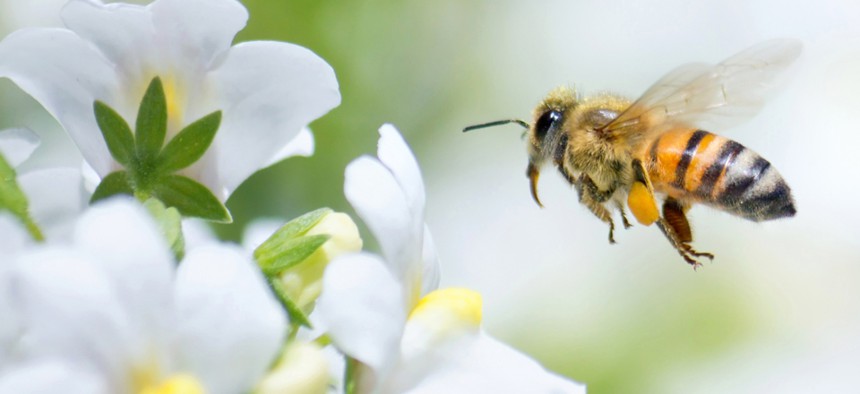
Sumikophoto/Shutterstock.com
White House Creates New Honeybee Task Force
The presidential task force will investigate and combat decreased populations for a number of pollinator species, including birds, bats and butterflies.
The White House announced late last week the creation of a Pollinator Health Task Force, a multi-departmental effort for "understanding, preventing, and recovering from" mass declines in the U.S. honeybee population.
Yes, a task force for bees. According to a fact sheet from the White House, the honeybee population is 2.5 million in 2014, less than half of what it was in the mid-20th century, and "since 2006, commercial beekeepers in the United States have seen honey bee colony loss rates increase to an average of 30 percent each winter." The presidential task force will investigate and combat decreased populations for a number of pollinator species, including birds, bats, and butterflies, but it's the bees that are particularly troublesome.
In his 2015 budget proposal, President Obama outlined $50 million for pollinator preservation – but that's in comparison to the roughly $15 billion honeybees contribute to the U.S. economy, according to the White House.
The significant drop in the honeybee population is typically attributed to environmental factors, like parasites and pesticides. One study found that exposure to neonicotinoid pesticides is related to "Colony Collapse Disorder," but the reliability of that particular study is questionable, and according to Vox, "it's still not clear whether pesticide exposure is a major factor in honeybee decline." Part of the task force's agenda will be "to determine the relative contributions of, and mitigation strategies for, different stressors leading to species declines and colony collapse disorder."
The task force will be comprised of members of 16 executive departments and agencies, including the Departments of Defense and State, and headed by the Secretary of Agriculture and Environmental Protection Agency Administrator.
"The problem is serious and requires immediate attention to ensure the sustainability of our food production systems, avoid additional economic impact on the agricultural sector, and protect the health of the environment," the presidential memorandum released Friday read.
(Image via Sumikophoto/Shutterstock.com)
NEXT STORY: One Thing That Is Going Right for Veterans






